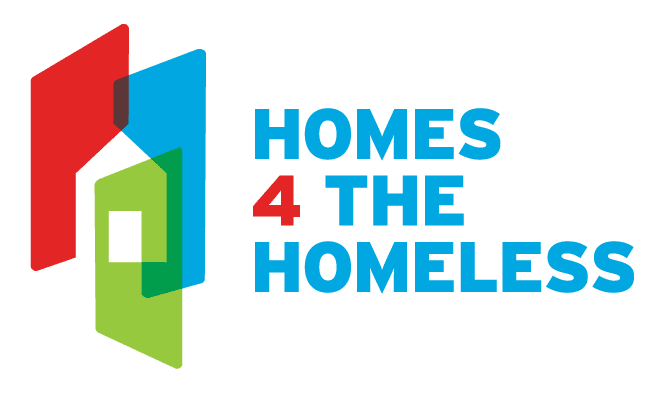National Alliance to End Homelessness and Partners Accuse HUD of Illegally Tying Funding to Ideology Instead of Community Need
A group of advocates sued the Department of Housing and Urban Development on Thursday, alleging that the agency is attempting to weaponize federal funding for homelessness assistance programs to advance the Trump administration’s ideological goals.
The lawsuit was filed by the National Alliance to End Homelessness and the Women’s Development Corporation, an affordable housing developer based in Rhode Island. It was filed in the U.S. District Court for the District of Rhode Island.
The 109-page lawsuit alleges that HUD abruptly changed its criteria for a $75 million supportive housing funding round after the funding was announced. Under the new criteria, HUD will only award funds to jurisdictions that do not have sanctuary city policies or practice Housing First or harm reduction strategies.
HUD is also “rushing funds out the door” by promising to award the money to projects that “clear its ideological threshold” on a first-come, first-served basis, according to the lawsuit.
“The work to end homelessness is not partisan, and it never should be,” Ann Oliva, CEO of the National Alliance to End Homelessness, said in a press release. “Permanent Supportive Housing is an essential resource for re-housing those with the greatest needs.”
“Withholding it from communities for political reasons is unconscionable, unconstitutional, and unaligned with the goal of serving vulnerable Americans,” she continued. “These actions will harm entire communities at a time when there is more pressure than ever to address chronic and unsheltered homelessness, and it signals the potential for further political interference in the work to get people off the streets. It cannot be allowed to continue.”
Frank Shea, Executive Director of Women’s Development Corporation, added that adding “political considerations” to the funding would mean the organization could no longer “provide critical services our communities need.”
“By implementing jurisdictional criteria that a nonprofit applicant doesn’t control, the administration is drawing lines around towns and entire states that will no longer be able to compete for federal funding,” Shea said.
Not the First Attempt to Rewrite the Rules
This is not the first time the Trump administration has sought to change the criteria for receiving federal funding for money that was already approved for disbursement. For instance, the administration sought to cancel billions in funding for nonprofits to get them to eliminate their Diversity, Equity, and Inclusion programs. A federal judge blocked the Trump administration’s efforts, although the lawsuit remains ongoing.
The administration has also sought to withhold billions earmarked for public universities to force them to comply with Trump’s executive order on campus antisemitism policies. A federal judge recently ruled that the administration illegally withheld $2.2 billion from Harvard University and violated the university’s First Amendment rights. The Trump administration has appealed that decision.
Advocates: ‘Housing Funds Are Being Held Hostage’
Skye Perryman, CEO of Democracy Forward, which is representing the plaintiffs, said the HUD funding criteria change is the latest example of the administration’s “unlawful attempts” to hold “lifesaving housing resources hostage” for ideological reasons.
“These federal housing funds exist to help people experiencing homelessness — not to punish states, localities, and service providers for meeting people where they are,” Perryman said.
The administration’s attempt to change the criteria for supportive housing funding is happening at a time when homelessness continues to grow nationwide. According to the latest federal data, more than 771,000 people were homeless in America in 2024, which is an increase of 18% compared to the previous year.
At the same time, investments in housing and supportive services are not keeping pace. A recent analysis from the National Alliance to End Homelessness found that 61% of jurisdictions in America reported having less shelter space to serve the local homeless population in 2024 than they did in 2023. Furthermore, data from the National Low Income Housing Coalition shows that America has a gap of 7.3 million affordable homes for its lowest income earning households.
A Growing Crisis Meets Political Interference
The lack of affordable housing is the primary driver of homelessness. It is also a contributing factor to the increasing number of renters who are cost-burdened, meaning they pay more than the recommended 30% of their income on rent and utilities. Renters who are cost-burdened face a higher risk of becoming homeless.
According to Harvard University’s Joint Center for Housing Studies, about half of renters in the U.S. were cost-burdened in 2022, a figure that represents about 22.6 million households.
“More people are sleeping outside than ever before because there is not enough housing that people can afford,” said Jesse Rabinowitz, a spokesperson for the National Homelessness Law Center. “Instead of meeting the needs of vulnerable individuals and families, this administration has abruptly and unlawfully manipulated a grantmaking process to build more housing that people can afford to force an ideological agenda that will only make homelessness worse.”
Steven Brown, executive director of the ACLU of Rhode Island, added that the Trump administration’s efforts to revise funding criteria would make it harder for organizations to address the “severe housing crisis” America faces.
“Yet the Trump administration would rather deny that funding and then rail against those who are unhoused,” Brown said. “This is just their latest effort to exacerbate the very problem they pretend to want to solve. We are hopeful that the court will reject this blatant ideological distortion of the grant process.”
How You Can Help
Now is not the time to be silent about homelessness in the United States or anywhere else. Unhoused people deserve safe and sanitary housing just as much as those who can afford rent or mortgage.
Poverty and homelessness are both policy choices, not personal failures. That’s why we need you to contact your officials and tell them you support legislation that:
- Streamlines the development of affordable housing
- Reduces barriers for people experiencing homelessness to enter permanent housing
- Bolsters government response to homelessness
Together, we can end homelessness.
